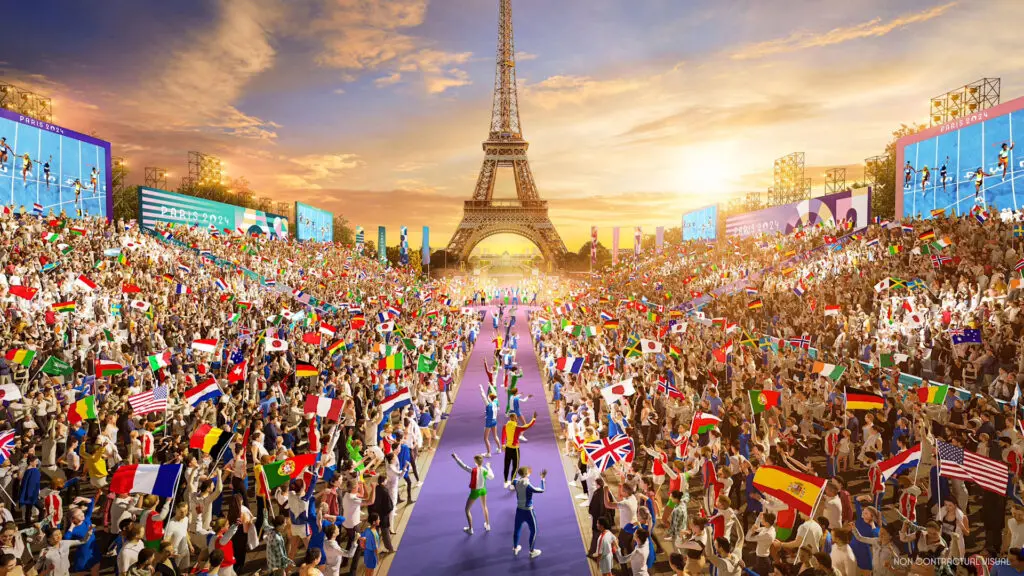Introduction: A Journey Through Time
Imagine a world where nations come together not for conflict, but for a celebration of human potential and achievement. This is the spirit of the Olympic Games, an event steeped in history and tradition that unites us all in a shared pursuit of excellence. Picture this: it’s 776 BC in ancient Greece, and a small town called Olympia is buzzing with excitement. Athletes from across the Greek city-states gather to compete in various sports, and a sense of camaraderie and competition fills the air. Fast forward to today, and the Olympic Games have evolved into a grand spectacle that captivates billions of viewers around the globe, with Paris 2024 set to be the next epic chapter.
The Origins of the Olympic Games
Ancient Greece: The Birthplace
The Olympic Games originated in ancient Greece, where they were held every four years in Olympia. These ancient games were athletic competitions and religious festivals dedicated to Zeus, the king of the Greek gods. The athletes, stripped of their armor, competed in a variety of events including running, wrestling, and chariot racing, all intending to bring glory to their city-states.
The Revival: Pierre de Coubertin’s Vision
Fast forward to the late 19th century, and the Olympics were revived by Pierre de Coubertin, a French educator and historian. Inspired by the ancient games, Coubertin aimed to create an event that would promote peace and understanding through sports. The first modern Olympics took place in Athens in 1896, marking a new era in international athletic competition.
The Modern Olympics: A Global Spectacle
Key Milestones in Modern History
The modern Olympics have come a long way since Athens in 1896. Key milestones include the introduction of winter sports in 1924 and the inclusion of female athletes, which began in 1900. The Olympics have also faced challenges, such as the boycotts during the Cold War, but have continued to evolve and grow.
First Modern Games: Athens 1896
The inaugural modern Olympics in Athens featured 13 countries and 43 events, a far cry from the massive, multi-sport spectacle we see today. It was a modest beginning, but it set the stage for the global event the Olympics would become.
The Impact of the World Wars
The world wars had a significant impact on the Olympics, with the 1940 and 1944 Games being canceled due to World War II. However, the Olympics resumed in London in 1948, symbolizing a return to peace and normalcy.
The Olympics Today: A Global Phenomenon
Today, the Olympics are a global phenomenon, showcasing the best athletes from around the world and attracting audiences of billions. The games feature a wide range of sports, from traditional track and field to newer additions like skateboarding and surfing.
Records and Achievements
Olympic records are a testament to human achievement and perseverance. From Usain Bolt’s record-breaking sprints to Michael Phelps’ astounding swimming performances, the Olympics highlight extraordinary feats of athleticism.
Notable Athletes and Moments
Some of the most memorable moments in Olympic history include Michael Johnson’s double gold in 1996, the “Miracle on Ice” in 1980, and Simone Biles’ incredible performances in gymnastics. These moments not only define the Games but also inspire future generations.
Olympic Games Paris 2024: What to Expect
Overview of the Paris 2024 Games
The Paris Olympics Games 2024 will bring the Games back to the City of Light for the first time since 1924. This event promises to blend tradition with modernity, showcasing the rich history of Paris while embracing cutting-edge innovations.
Key Events and Sports
Paris 2024 will feature a mix of traditional Olympic sports and new additions. Highlights include athletics, swimming, gymnastics, and sports like climbing and breakdancing, which are gaining popularity.
Venues and Locations
The Paris Olympic Games 2024 will take place in iconic locations across the city, from the historic Stade de France to the stunning Paris La Défense Arena. The city’s landmarks, including the Eiffel Tower and the Seine River, will provide a picturesque backdrop for the competitions.
The Significance of Paris 2024
Historical Significance
Returning to Paris is a nod to the city’s Olympic heritage and its role in the history of the Games. It’s a celebration of a century of Olympic legacy and a testament to the enduring spirit of the event.
Expected Highlights and Innovations
Paris 2024 is expected to introduce several innovations, including a more sustainable approach to the Games and advanced technology to enhance the spectator experience. Expect cutting-edge opening and closing ceremonies that blend art and technology in unprecedented ways.
How the Olympics Impact the World
Economic and Social Effects
The Olympics have a profound impact on the host cities and countries. They boost tourism, create jobs, and drive economic growth. The Games also promote social cohesion and pride, bringing people together from diverse backgrounds.
Tourism and Local Economy
Hosting the Olympics can significantly boost a city’s tourism industry, as visitors flock to see the events and explore the local culture. This influx of tourists can lead to long-term economic benefits for the host city.
Cultural Exchange and Unity
The Olympics foster cultural exchange by bringing together people from different countries and backgrounds. This global gathering promotes understanding and unity, showcasing the power of sports to bridge cultural divides.
Conclusion
The Olympic Games are much more than just a series of athletic competitions; they are a celebration of human potential, unity, and perseverance. From their ancient origins in Greece to the upcoming Paris 2024 Games, the Olympics have continually evolved, reflecting both our past achievements and future aspirations. As we look forward to the Paris 2024 Games, we can anticipate thrilling athletic performances and a renewed sense of global camaraderie and celebration.

